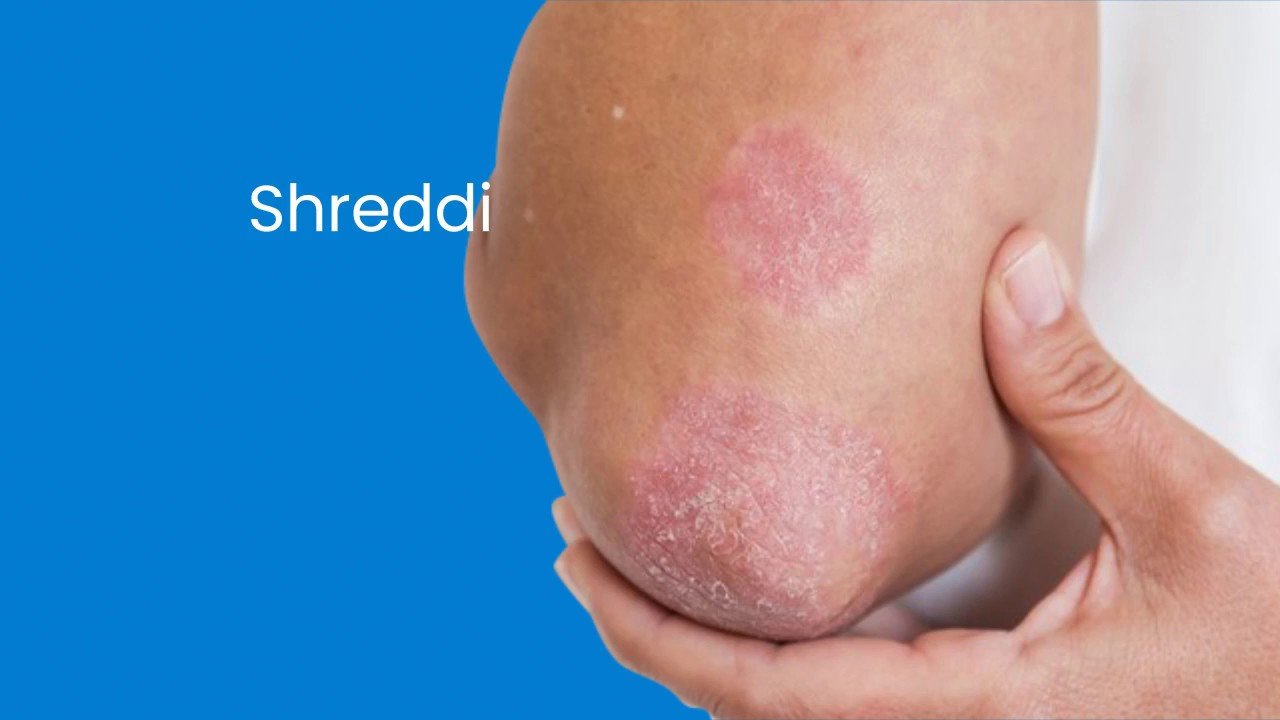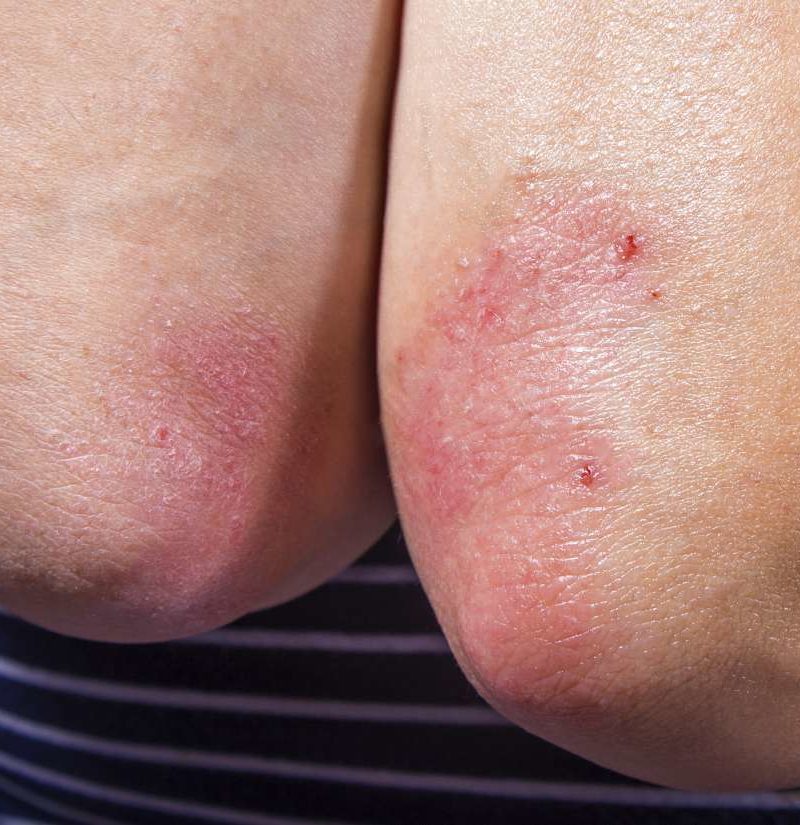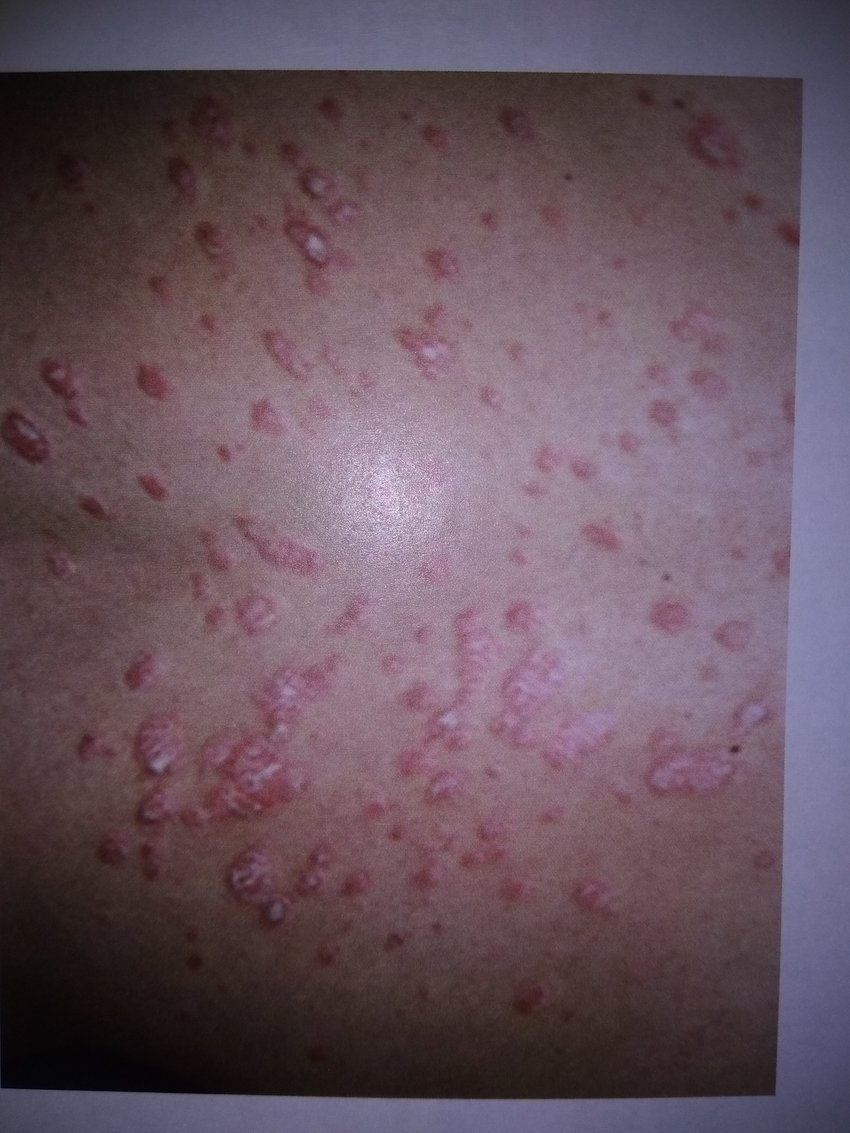Risk Factors For Psoriasis That Spreads
Psoriasis is more likely to spread and become severe when it is left untreated. So treatment from a doctor who specializes in psoriasis can significantly reduce the risk that psoriasis will spread, or that the next flare-up will be worse than the last.
A family history of psoriasis, having another immune system disorder, smoking, trauma to the skin, and exposure to many psoriasis triggers are additional risk factors that might cause psoriasis to spread.
It is essential to moisturize the skin because it can speed the healing process and prevent itching. A range of moisturizing lotions that are suitable for psoriasis are available without a prescription.
Tar shampoo and soap may also help. Ingredients that encourage old skin cells to fall off, such as salicylic acid, can reduce the appearance of flaky plaques. However, some of these products can be harsh on the skin, so getting advice from a professional can help determine the most suitable lotion.
Steroid creams, such as hydrocortisone, are also safe and effective for most people. They help with itching and can speed healing. Using steroid creams for a very long time may cause side effects, however, so talk to a doctor about the safe use of steroids.
Prevention Of Psoriasis In Children
You cannot prevent psoriasis as it is an autoimmune disease, but you can minimize the flare-ups by eliminating the triggers. Identify what is causing the symptoms and try to eliminate them from your childs life. Stress is an important triggering factor. Stress of exams or tensions at home or other kids promote psoriasis.
A volunteer with The National Psoriasis Foundation, US, and a psoriasis patient expert Alisha M. Bridges recommends these tips to, minimize and manage psoriasis flare-ups:
- Staying on top of the treatment regimen and communicating with the doctor.
- Trying to get a head-start on flare-ups by paying attention to the childs body, and recognizing any new spots, or areas that feel itchier.
- Moisturizing the skin, especially in winter.
- Changing shower and bath water to cooler temperatures.
Eating healthy, exercising, and getting adequate sleep can also help your childs body cope with the symptoms of psoriasis. Also, keeping your childs skin clean and moisturized might reduce irritation and itching.
Why Is My Psoriasis Spreading
Many of us with psoriasis may see a small patch of red, flaky skin on your leg but then the next day it has nearly doubled in size and is more inflamed and red than before. An experience like this can not only be scary, but could make you think, is my psoriasis somehow spreading? Rest assured that your psoriasis cannot spread like a rash, but instead can be triggered by various different factors which can cause a flare up. Your psoriasis is also not spreadable, meaning it is not contagious and you cannot give it to another person. While this information is reassuring, it does not answer the question about how your psoriasis is seeming to spread all over your body. Here are some facts and tips for psoriasis flare ups and how to stop the spread:
Your psoriasis may spread during a flare up. You could start with one or two small red patches that then get bigger or start to spread to other places over your body. The good thing to know here is that this is normal. While it is uncomfortable, it is not something to be alarmed about and it can be treated. Psoriasis is cyclical, meaning it is dormant for a few weeks or months and then becomes active again for a few weeks, which is called a flare up.
Don’t Miss: Signs And Symptoms Of Plaque Psoriasis
How To Prevent Psoriasis From Returning
There is no one-size-fits-all solution to managing psoriasis. If you are lucky enough to experience remission, you can take steps to keep your skin healthy and clear. Try the following strategies:
Expose skin to sunlight: Some sun exposure can help keep mild psoriasis at bay. Researchers recommend multiple but short sunlight exposures for people with psoriasis who can tolerate sunlight.
Manage stress: Since stress is a psoriasis trigger, it is good to relax and manage stress to keep inflammation from developing.
Avoid scrubbing: Scrubbing skin can irritate it and trigger a psoriasis flare. Wash your skin gently, pat dry, and moisturize.
Keep your body healthy: Staying healthy can reduce systemic inflammation. Ways to keep your body healthy include eating a nutritious, well-balanced diet, not smoking, being active, and restricting alcohol intake.
What Is The Treatment For Guttate Psoriasis

Usually, this type of psoriasis goes away in a few weeks without treatment. Simple reassurance and moisturizers to soften the skin may be sufficient care. The choice of treatment depends on the severity of the outbreak and the individuals preferences. For example, applying topical steroids, although effective, could be bothersome because the outbreak occurs over a large portion of the body in most cases of guttate psoriasis.
- Antibiotics: If someone has a history of psoriasis, the doctor will most likely take a throat culture when that individual has a sore throat. If the culture results are positive , then starting immediately on antibiotics for the infection is very helpful.
The doctor may prescribe a short course of artificial light therapy . Broadband ultraviolet B or narrowband ultraviolet B light may be used.
It is probably advisable to avoid the ultraviolet lights provided in tanning salons.
Don’t Miss: How Long Does It Take To Clear Up Psoriasis
The Different Types Of Psoriasis
Some of the most commonly contracted form of the disease are: inverse psoriasis, plaque psoriasis, pustular psoriasis, guttate psoriasis and erythrodermic psoriasis.
Most people afflicted with the condition contract a singular type, however one type can lead to another when stimulated by external situations such as a health concern or a stressful situation. Often ailments that cause the immune system to be overburdened can lead to the condition and worsening of psoriasis symptoms.
Plaque psoriasis is the most common type of the skin affliction and almost 80% of those afflicted suffer from this.
Guttate psoriasus is the second most common type. It is generally linked to a viral infection and is most commonly found in teenagers and children.
Pustular psoriasis is a rare kind of the diseases that is characterized by raised pustules that are covered with pus.
Erythrodermic psoriasis is very painful and can also be deadly in some cases.
Inverse psoriasis is a glossy and shiny eruption that generally affects the armpits, breasts and genital areas.
In some severe cases, people develop arthritic symptoms called as psoriatic arthritis.
People thus afflicted complain of painful, swollen joints. The severity of the ailment can sometimes also cause loss of finger and toe nails due to the skin build-up beneath the surface that pushes the nail out of the nail bed.
How Is Childhood Psoriasis Treated
If the disease is mild, local therapy is generally preferred, particularly with cortisone-based ointments. Other possibilities, although not studied directly in children but derived from its use in adults, are ointments based on calcipotriol , tazarotene, vegetable tar, or non-steroidal anti-inflammatory drugs. In the scaly forms and only in older children, keratolytic creams can be applied, with salicylic acid, urea, mixtures of alpha and beta hydroxy acids, capable of detaching the scales and favoring their elimination.
For the most severe forms, that is, those that affect sensitive parts such as hands and face, or an extension greater than 10% of the body, the treatment of choice is that of biological drugs that block TNF-alpha, an immunological factor known to its involvement in psoriasis, as well as in other inflammatory diseases such as rheumatoid arthritis. These are drugs that are usually given by subcutaneous injection once a week or every two weeks. Meanwhile, other biological drugs are being studied that could be used as therapy in the future.
For all forms, a constant treatment with moisturizers and emollients is always indicated.
Also Check: Excimer Laser Treatment For Psoriasis
Ways To Treat Psoriasis At Home
Psoriasis is a recurring autoimmune disorder characterized by red, flaky patches on the skin.
Even though it affects your skin, psoriasis actually begins deep inside your body in your immune system.
It comes from your T cells, a type of white blood cell. T cells are designed to protect the body from infection and disease. When these cells mistakenly become active and set off other immune responses, it can lead to psoriasis symptoms.
Even though theres no cure, many treatments exist to ease the symptoms of psoriasis. Here are 12 ways to manage mild symptoms at home.
Key Points About Psoriasis
- Psoriasis is a chronic skin condition. It causes inflamed, red, raised areas of skin that often develop dry, silvery scales called plaques.
- Psoriasis is not contagious. It is an autoimmune skin disease.
- Psoriasis is a long-term disease. You will have flare-ups that come and go over time.
- There is no cure, but treatments can help relieve symptoms. Treatment can include creams, light therapy , and oral or injected medicine.
- Psoriasis is a chronic condition. But you can manage it by working with your healthcare provider to create a long-term treatment plan and self-care routine that includes attention to both physical and emotional needs.
You May Like: Crohn’s Disease And Psoriasis
Can You Prevent Psoriasis
Although there is some evidence that specific environmental factors might trigger psoriasis, those factors vary from between patients. This makes it almost impossible to prevent psoriasis developing for the first time. However, it might be possible to prevent subsequent flare-ups by keeping track of triggers.
A person with psoriasis might find that their psoriasis gets worse with stress, after sunburn, or when they eat certain foods. Avoiding these triggers can lengthen the time between flare-ups, and may prevent an early flare-up from spreading.
Diet And Psoriasis: Whats The Connection
Can your diet help keep psoriasis under control? Maybe. An observational study published online July 25, 2018, by JAMA Dermatology found that people with psoriasis who followed a Mediterranean diet an eating pattern rich in fruits and vegetables, legumes, whole grains, fish, fruit, nuts, and extra-virgin olive oil experienced fewer severe flare-ups. This was only an association and more research is needed, but experts believe the Mediterranean diet contains many foods that have an anti-inflammatory effect in the body and may offer extra protection against psoriasis triggers.
Also Check: How Did I Get Psoriasis
Take Care Of Your Skin And Scalp
Be careful with your skin. Never pick at patches or scales, as you may make your psoriasis worse. Use caution when trimming your nails. If you cut yourself, it might make symptoms flare. If you have psoriasis on your scalp, rub your topical treatments — such as tar shampoos — into your scalp. Regular bathing with soothing products, such as tar solutions, may bring relief, too. Get tips on how to choose a medicated shampoo for scalp psoriasis.
Box : Useful Resources

- Psoriasis Epidemiology Screening Toolbit.ly/33sU9y9
- Lund and Browder Chartbit.ly/33BJ3a3
- Childrens Dermatology Life Quality Index bit.ly/3rwXrbw
- Psoriasis Area and Severity Indexbit.ly/3tJIqG7
- Primary Care Dermatology Societywww.pcds.org.uk
Dr George Moncrieff
GP, Oxfordshire past Chair of the Dermatology Council for England past Committee member of the Primary Care Dermatology Society
Note: At the time of publication , some of the drugs discussed in this article did not have UK marketing authorisation for the indications discussed. Prescribers should refer to the individual summaries of product characteristics for further information and recommendations regarding the use of pharmacological therapies. For off-licence use of medicines, the prescriber should follow relevant professional guidance, taking full responsibility for the decision. Informed consent should be obtained and documented. See the General Medical Councils Good practice in prescribing and managing medicines and devices for further information.
Read Also: Homeopathic Remedies For Scalp Psoriasis
Whats Triggering Your Psoriasis Flare
Science isnt exactly sure what causes psoriasis. It seems to be a combo of genetics, environmental triggers, and your immune system going rogue against your skin cells.
If youre genetically predisposed to psoriasis , youll prob experience your first flare-up because of an environmental trigger.
Even folks with a tried-and-true treatment protocol can get flare-ups. Theres just no way to control *everything* around you and trying to control everything would be a lot of stress.
Most psoriasis flare-ups start as a small itchy patch that spreads pretty quickly. Scratching it wont speed up the spread, but it could lead to irritation and infection.
Expose Yourself To Sunlight
For most people, cold weather makes psoriasis worse. Instead, warmer weather helps ease itchiness. Therefore, you might want to expose yourself to adequate sunlight when suffering from psoriasis. Do this moderately to avoid sunburn which will make the affected areas worse, instead. Sunlight eliminates infecting bacteria and thus, prevents psoriasis from spreading.
Recommended Reading: Root Cause Of Scalp Psoriasis
Will Psoriasis Cause My Child To Be Emotional
Many children if young will accept their skin problems as a matter of course, whilst others, depending on their age of onset may take their conditions differently and feel embarrassed, upset, angry, stressed or even depressed. They may feel anxious about recurring flare-ups once theyve experienced good periods of remission, and become pre-occupied and distracted from normal daily activities. As they grow up, possibly pre-occupied with their body, body image and peer pressure, their psoriasis may become more of an issue for them. Love, support, encouragement and trust in their medical team too will help overcome such stressful periods in their lives. Parents should always be understanding and aware of such issues especially if their child has psoriasis and/or psoriatic arthritis.
One of the best things a parent can do for their child from an early age, or when they first get psoriasis is educate their children about the condition, answer any questions or worries they have as they arise, reassure them on a regular basis, take an interest in how they feel, monitor their psoriasis in a discreet way so not to make a big issue of it. Reassure them that there is much research going on to find a cure and easier, more effective treatments to use with better, longer outcomes of remission. It is not a contagious condition and that their friends, boyfriends and girlfriends will not catch it. Encourage them to talk openly about their condition and not to hide it.
More Than Skin Troubles
A 2017 study from the Journal of the American Academy of Dermatology found that people with psoriasis that covers 10% of their body or more are 64% more likely than those without psoriasis to develop type 2 diabetes. “About 30% of people with psoriasis also might develop psoriatic arthritis, which causes destructive inflammation in your joints,” says dermatologist Dr. Gideon Smith. Psoriasis also may signal a higher risk for fatty liver disease and heart attacks.
Read Also: How To Fix Psoriasis On Scalp
Choose Your Diets Carefully
Some diets can trigger more toxins in our body, which means more bad bacteria. This environment leads to more severe psoriasis. Vice versa, some other dietary choices contain anti-inflammatory substances which keep psoriasis from spreading. If you are suffering from psoriasis, it is wise to cut down your consumption of red meat. Instead, you can replace it with more fruit and vegetables which are enriched with antioxidants. This is a good substance to promote natural collagen production to heal the affected areas. Garlic and turmeric are known as ingredients which are high in anti-inflammatory substances.
How Long Does A Psoriasis Flare
People with psoriasis often have flare-ups . Flare-ups, or flares, are often the result of specific triggers, such as cold and dry weather, infection, illness, stress, dry skin, skin injuries, and the use of some medicines.
A psoriasis flare can last from a few weeks to a few months. Flares are usually followed by periods in which symptoms subside or go into remission.
A psoriasis flare-up is marked by red, dry, and thick skin patches. These patches sometimes contain silvery-white scales that itch or burn. The skin might become cracked and bleed. Psoriasis plaques frequently appear on the scalp, low back, knees, skinfolds , and genitals.
Additional symptoms of a psoriasis flare include:
- Nail changes: Pitting, thickening, ridges, crumbling, discoloration, and nail bed separation
- Emotional effects: Including depression and anxiety
- Joint symptoms: Including stiff, swollen joints if you have psoriatic arthritis, which affects up to 30% of people with psoriasis
Recommended Reading: Psoriasis On Palms Of Hands Pictures
Complementary And Alternative Remedies
Some people use complementary and alternative remedies, such as acupuncture, to prevent psoriasis from spreading. Other strategies, such as meditation and therapy, may help some people cope with the emotional effects and social stigma of having psoriasis.
Although there is some evidence that specific environmental factors might trigger psoriasis, those factors vary from between patients. This makes it almost impossible to prevent psoriasis developing for the first time. However, it might be possible to prevent subsequent flare-ups by keeping track of triggers.
A person with psoriasis might find that their psoriasis gets worse with stress, after sunburn, or when they eat certain foods. Avoiding these triggers can lengthen the time between flare-ups, and may prevent an early flare-up from spreading.
Signs And Symptoms Of Psoriasis

Psoriasis plaques can range from a few spots of dandruff-like scaling to major eruptions that cover large areas. The diseases symptoms and appearance vary according to the type and severity of psoriasis.
Some common signs and symptoms include:
- Discolored patches or raised plaques of skin that are covered with scales
- Burning, itching, or soreness near the affected areas
- Pitted or thickened fingernails or toenails
You May Like: Worst Case Of Psoriasis Ever